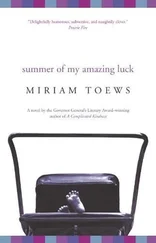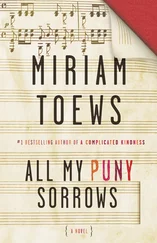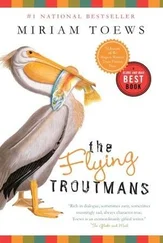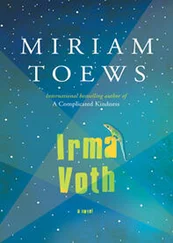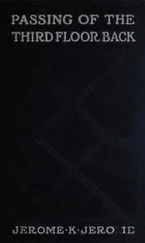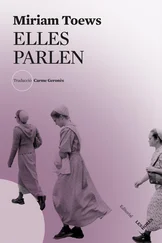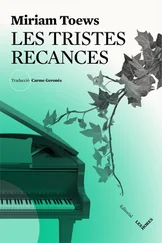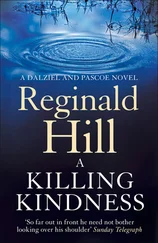Me and Travis were parked on the windmill side of the pits staring at the water and listening to the radio. We both reached out to turn up the volume at the very same time when the guitars kicked in in a Cars song. That means we’re meant for each other, I said. We had a conversation that resulted in a fight. I asked him what he was thinking about and he said nothing. No, what, I said. Well, he said, about floating around in a kind of, you know, vortex of sleeping, drinking and fucking — never quite coming into consciousness. I said oh (we’d never fucked) and he asked me what I was thinking about. Horses, I said. Getting a small horse I can ride but not be scared of. I like to have fun but not fun mixed with fear. I guess it just bugged him that I was thinking about horses while he was thinking about consciousness and fucking and he said he was going to get out and walk over to the diving-board side of the pits to see if The Golden Comb or Eldon was hanging out over there and he’d be back in a bit. Great, I said, because I like sitting alone in a truck staring at gravel. Which was the unsarcastic truth. After he left I got out of the truck and wandered over to the water and saw Sheridan Klippenstein standing there. He wore a Ludwig drum shirt with cut-off sleeves and camouflage pants. He had square brown hands and very thin wrists and a little muscle definition beginning in his upper arms. He cupped his cigarette against the wind and spit a lot.
He and I used to be neighbours before a series of deranged events befell his family. He was also the grandson of this old woman whose leg wounds my mother used to dress. Her name was Mrs. Klippenstein. She lived in a big old farmhouse out on Garson Road. I once wrote a short story about her house and Mr. Quiring corrected me about some detail in the kitchen and I asked him how he knew about old Mrs. Klippenstein’s kitchen and he told me that he’d once changed some fuses for her, that he was a friend of the family. Small towns.
In the summer Sheridan and I ran like giant biped mice on spools of hydro wire that were kept in a yard next to his house. In the winter we slid off the roof of his bungalow in shovels. In junior high we kind of lost track of each other.
What are you doing here, I asked him. He told me that his dad had left home to play bass in a cover band from North Dakota. Not a cover band, I said.
I know, said Sheridan. He gathered up a mouthful of saliva and horked it far across the water. It got caught up in a gentle breeze and hung suspended in mid-air. It sparkled in the sun like a tiny chandelier before it dropped softly and disappeared.
He left me an adding machine, he said.
Get out, I said.
No, it’s true, he told me. He said he won’t know where he’ll be for a while.
That’s it? I asked.
Okay, he said, I also inherited an umpire ticker. Obviously his dad had enjoyed keeping track of things other than himself. The last time I saw him he was juggling pickled eggs in the rain outside the Kyro, a bar on the other side of the town limits, beyond the reach of Jesus, Menno “Sexy” Simons and Uncle Hands. The not-so-mellow triumvirate. My dad had said don’t look, but I’d already seen him. Pickled eggs are the Devil’s snack.
Remember when you climbed door frames in your bare feet, I asked him. I looked at his feet. He was wearing Greb Kodiaks. Everybody in town wore Greb Kodiaks, as though we were a people in need of a serious grip, perpetually on the verge of falling to the ground without a sound. Divided we fall politely and modestly.
So what are you doing these days, I asked him. He said on weekends he worked in the Sandilands at Moose Lake.
Yeah? I said. Do you like it?
He said it kind of gave him the creeps because that was where his mom had killed herself years ago. But you know, he said, there are fun things to do there too…fishing, hiking, waterskiing. I nodded. She hadn’t been aware of her options. I vaguely remembered his mom. She was the first person I’d ever known with highlights in her hair. She owned toe socks. She called Sheridan her little man and made us Nestlé’s Quik with extra powder. She taught us skipping rhymes. When she was sweeping and we were in her way she would say get out of my road. She once told me she liked the freckles on my shoulders, they were like stars in the sky. And she let us draw all over the drywall in the basement.
We talked a bit about how we used to say goodbye in all the languages we could remember and some we made up. That was bent, he said. He spit some more and offered me a drag. We’d stand by our front doors yelling stuff like shalom and Faloma and nice aroma let’s build a snowma in the dark, we’d just go on and on, in early Menno rap style, until his dad asked him if he wanted a smack. A smack attack jack? Get back on track! He didn’t mean it. He was a gentle guy with Brylcreemed hair. We’d hear him laughing his head off somewhere in his house. We’d see Merv Griffin’s face reflected in the living-room window. Sometimes we’d hear his dad arguing with his demons in the old language of our people.
What made him go into hogs, I asked. Sheridan shrugged. I thought about how he used to stick his shoulder blades out like little wings.
Hogs, covers, he said. He was right. What difference did it make? I knew his dad had been excommunicated for something but we didn’t talk about that. Nobody in town ever talked about that.
When it happened, years ago, Sheridan’s mom went nuts. Trudie had told me and Tash that she thought Sheridan’s dad should have left town to save his mom the pain of having to pretend he was dead. She’d really loved him. They’d had a lot of fun together when he wasn’t too drunk.
But now Sheridan and I were older and staring at the water and sharing a cigarette. I told him I hadn’t seen him in school lately and he told me he’d had an entire bottle of Swedish oil poured over his head in woodworking for falling asleep and after that, after being lacquered, he couldn’t muster up the energy to come back. I told him that in grade seven science I’d been strapped repeatedly on the hand with a wooden ruler in front of everybody for talking about something other than tuning forks.
We talked about our old expressions like monkey-doer, wordy and I don’t give a care. Remember bubble language, I asked him. He said yeah, but he couldn’t remember how to do it any more. We talked about pouring hydrogen peroxide into the blisters we got from playing tag on the monkey bars at Ash Park. And we talked about the stupid things we’d scratched into the metal of the bars like who loves whom forever.
Then I heard the truck start up and some music, some 10cc…something about dying…playing on the radio and the horn honking and I told Sheridan I had to go. Let’s meet here every five years to catch up on our lives, he said. Yeah, okay, I said, and waved goodbye.
When we were little, Tash and I would sit in the darkened dining room of my grandmother’s farmhouse, listening to the funeral announcements. They came on after supper, on the local radio station we were allowed to listen to because the elders knew that it was better for little children to listen to the names of dead people being read out in a terrifying monotone than the Beatles singing all we need is love. Afterwards my grandma would tell us: They have gone home at last. Praise the Lord. Then we would play this game called Knipsbrat with each other until our middle fingers were sore. It was one of the few games we were allowed to play. Golf was another one because it consisted of using a rod to hit something much, much smaller than yourself and a lot of men in this town enjoyed that sort of thing.
Читать дальше

